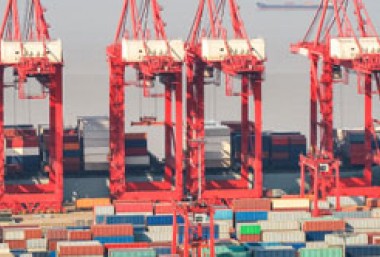The supply of Apple iPad computers in China could be in jeopardy as the trade mark dispute rages between Apple and Proview, the Chinese owners of the IPAD trade mark.
It's a timely reminder to all brand owners to have your trade mark protection in order in your key markets before you start selling and manufacturing your product.
So how did the dispute arise?
10 years ago, before Apple even decided to use the iPad brand, a Taiwanese manufacturer of liquid crystal displays and other computer products, Proview (Taiwan), registered the IPAD trade mark in various countries.
In 2006, Apple purchased the IPAD trade marks from Proview (Taiwan).
But, as Apple later discovered, the contract apparently didn't cover China. In fact, a different Chinese company owned the IPAD trade mark in China. The plot thickens as the Chinese owner of the IPAD trade mark happened to be a subsidiary of seller, called Proview (Shenzhen).
Even though ownership of the trade mark in China was in dispute, Apple nevertheless started manufacturing and selling iPad computers in China.
Apple lodged claims in the Chinese courts arguing the trade mark purchase included the Chinese IPAD registration. However, the courts ruled that Proview (Shenzhen) is the owner of the IPAD trade mark in China.
Proview is now trying to interrupt Apple's iPad business
With the judgment in hand, reports and rumours suggest that Proview (Shenzhen) is considering the following legal action:
- Asking the Chinese authorities to confiscate iPad computers from store shelves as they infringe its IPAD trade mark and also fine Apple for infringing its trade mark rights.
- Suing Apple for trade mark infringement. Reports suggest Proview (Shenzhen) will seek between US$38 million and US$1.6 billion in damages.
- Using Chinese Customs to stop the import and export of iPad computers. The Customs system is commonly used by brand owners to prevent the export of counterfeits. So, Proview could claim that any iPad computers made in China are counterfeit, and should not leave the country. While Apple may be able to find a legal defence to such action (e.g. they are exporting iPad computers to the USA, where Apple owns the IPAD trade mark), fighting the issue would be disruptive to supply and costly.
How will Apple protect its iPad business?
Apple must choose to either continue fighting in the courts or settle by buying the Chinese trade mark. Neither option is likely to be cheap. Reports suggest Apple has already spent more than US$600,000 in legal fees and rumours have predicted Proview (Shenzhen) will want up to US$2 billion to sell the Chinese registration.
Lessons you can learn
While this dispute may be a combination of bad luck and timing for Apple, it clearly demonstrates that trade mark disputes are drawn out and costly. The best way to minimise this type of supply interruption is to ensure you have firm legal rights to your trade mark before launching or manufacturing in any country.
If you want to launch a new brand, either here or overseas, remember to:
- Check you won't get sued: Search to check your new trade mark will not infringe anyone else's prior rights. Your trade mark lawyer will be able to conduct knock-out checks in many international registries, to discover if someone else has already registered the same trade mark. Once the shortlist has been whittled down, you should do more detailed checks for the top few brands on your list.
- Be aware of local laws in your export countries: Some countries only recognise the rights of the company that is first to register a trade mark; prior users sometimes have no legal rights like they might do in common law jurisdictions such as ours, Australia and the UK.
- Register your rights as soon as possible: Once you confirm a trade mark is free to use, register it in your key markets, especially any Asian and Middle Eastern markets, where rights in a trade mark usually arise through registration. Delays can be costly. Recent reports suggest Cookie Time has opposed a Chinese application for a copy of its logo. Unfortunately, Cookie Time is not alone; many Kiwi companies have been stung by opportunistic filings like this. If you register your brands in China as soon as possible, then later applications should be blocked from registration and costly oppositions can be avoided
- Use experts: If you need to buy a trade mark from someone else, like Apple did, have a trade mark expert draft the agreement. Many countries, like China, have significant 'red tape' and will not recognise your rights until specific documents and forms, from both the seller and purchaser, are submitted to the Trade Marks Office. Often signing an agreement is only the first step.
- Enforce your rights: Once your trade mark is registered, enforce it. Sue companies that copy your trade mark and oppose others that want to get too close to your brands.
- Take advantage of local enforcement options: Australian and New Zealand Customs will actively prevent the import of counterfeits. Some countries, like China, go one step further, and actively prevent the export of counterfeits made in their country. Your trade mark lawyer will be able to help you work with Customs offices, here and overseas, to stem the flow of counterfeits.
An edited version of this article was published in NZ Exporter, March/April 2012 edition.
